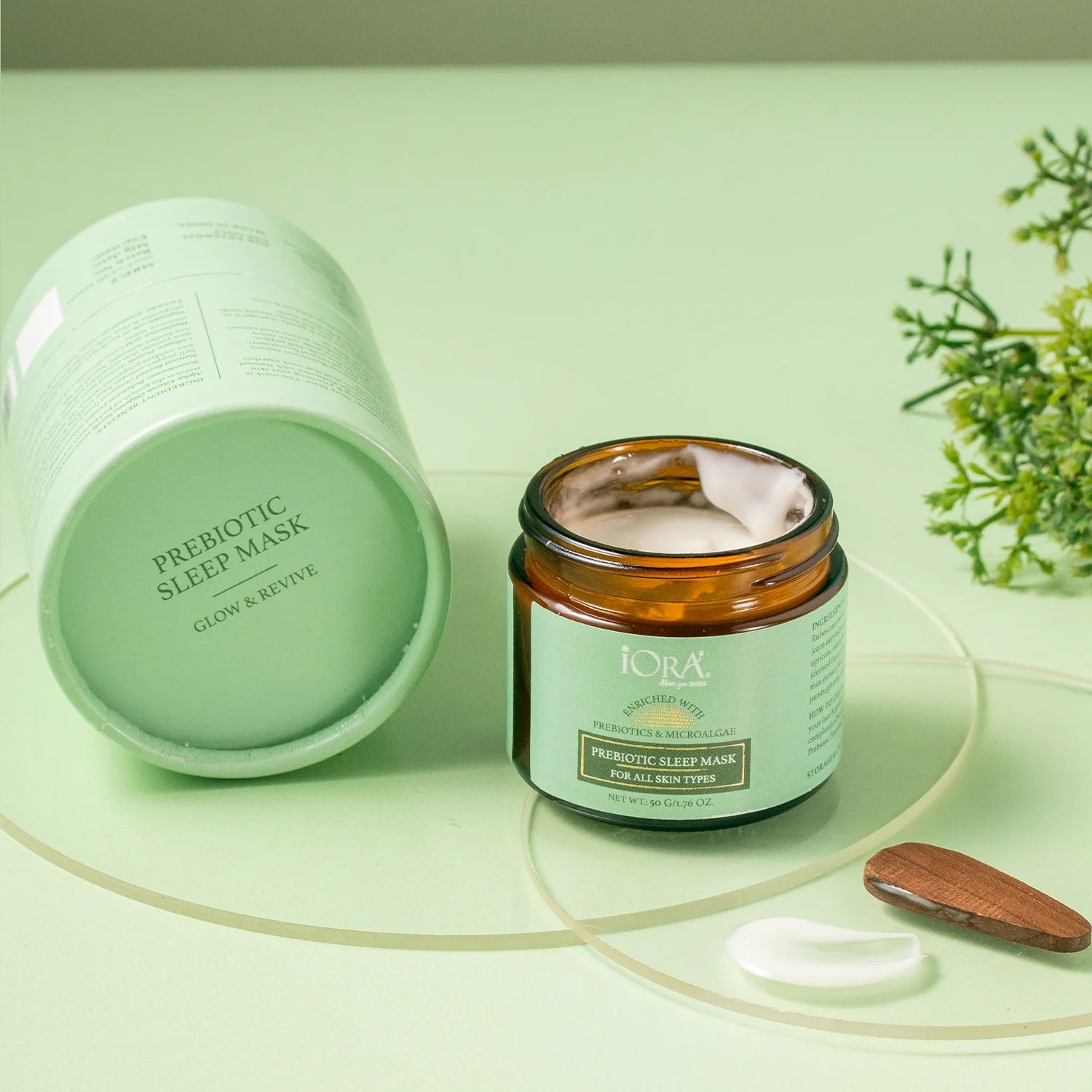What is collagen and can you stimulate collagen production?
If there’s one protein found abundantly in our body, it's collagen - which is also an important one. Our body produces it naturally. Collagen is present in our bones, tendons, muscles, various tissues, digestive system, and even in our blood vessels. It can be sighted as tightly packed molecules.
Collagen provides structure and firmness to our entire body, especially our skin; apart from tending to several other bodily functions including wound healing. A healthy amount of collagen keeps our skin elastic, plumpy from the inside, and super soft from the outside. Additionally, your muscle and bone health also stays put if your collagen levels are just right.
And yes, we can stimulate collagen production with the right methods, both naturally as well as through clinical treatments. But ensuring you have all the knowledge regarding collagen and the possible treatments is a must.
What produces collagen in the skin?
As stated earlier, collagen is produced naturally by our body. Factors like Vitamin C, certain nutrients, and genetics are essential for its production
The life story of collagen (age/phase-wise collagen production)

There’s a change in collagen structure as we age. The collagen bonds start weakening throughout the layers of skin, muscles, and bones gradually. This is the main reason why we develop wrinkles and saggy skin. We start ageing, look older, and feel slightly weaker (physically) due to the loss of collagen levels in our bodies.
WHAT HAPPENS FURTHERMORE….
- Wound healing capacity decreases
- Join pain starts kicking in
- Skin starts sagging and losing its structure
- People may get diagnosed with scurvy
- Osteogenesis imperfecta
- Ehlers-Danlos syndrome
Now, you must be wondering how to stimulate collagen in the face.
Everyone wants to look their age or even younger. This is only possible if the collagen levels in your body are just right. Good skincare habits, a healthy lifestyle, and the right products can help you achieve this. So, if you want to know how to improve collagen production in skin, here is our a list of 10 ways to do so.
1. Hyaluronic acid

What ingredients stimulate collagen production? - well, one of the most important ones is hyaluronic acid. It promotes soft tissue growth, prompting the body to produce more collagen and elastin. Not only that, it is great for skin hydration. It also repairs and maintains a healthy skin barrier.
2. Vitamin C

A deficiency of Vitamin C can lead to low collagen levels and could also result in a skin condition called scurvy. Therefore, eating and drinking foods that contain Vitamin C can help counter this.
Some citruses and veggies high in this Vitamin are:
- Broccoli
- Orange
- Brussel Sprouts
- Strawberries
- Blackcurrants, etc.
3. iORA’s sleep mask

With natural retinol, hyaluronic acid, vegetable oils, and most importantly - plant-derived collagen protein; iORA’s sleep mask works wonders. Applying it during the night helps flourish the skin’s ecosystem and stimulates collagen formation in the skin.
4. Light therapy

Light therapies are proven to boost collagen production in the skin and also reverse the visible signs of ageing. Red light therapy is a quick and easy way to do so (safe too). You can get this treatment done clinically through a dermatologist or even get the necessary equipment to implement it yourself at home. But no matter what you do, consult a specialist and go through the pros, and cons of it.
5. Eat Zinc-rich foods

Zinc-rich foods like beans, nuts, dairy, cereals, bread, etc. are amazing for collagen production. You can consume them with your supplements for effective results on a regular basis.
6. SPIRULINA

Spirulina is a source of gelatin. It is an algae that is lesser known to people. Spirulina - a plant-based protein, contains amino acids namely - Glycine and proline - that form collagen. You can consume Spirulina in liquid form by mixing its powder in water or by taking its tablets.
7. Facial Massages

Massages, as we all know, improve blood circulation and ease strained muscles. They also help in tightening the skin, making you look younger, and also accelerating collagen production in the skin.
8. Garlic

The sulphur in garlic is the key mineral that helps synthesise collagen and also prevents its breakdown. So, use garlic as much as you like in your pasta, sauces, spreads, soups, etc. You need to consume enough quantity to let it benefit you though.
9. Collagen supplements

Supplements are another excellent option to reinforce collagen production in your skin. They are the easiest way to maintain your collagen levels daily wherever you are with the least effort. Most of them are made by the process of hydrolyzation. - Here, the maker breaks down the collagen into peptides, which are easier for our body to absorb. You can easily find these supplements in various forms like tablets, capsules, and even powders.
These supplements are good for both skin and joint health. Researchers have concluded that a regular intake of organic collagen supplements leads to elasticity, hydration, and firmness in the skin.
10. Medical procedures

There are several other medical procedures and treatments that can help you stimulate/restore collagen under an expert’s guidance. With the development of science and skincare, you can try out multiple options nowadays.
Common FAQ's around collagen
a. Are there different types of collagen?
Yes, there are 28 types of collagen present in the human body. Out of these, Type I, II, & Type III are the prominent ones.
- Type I helps tendons, bones, ligaments, and skin to gain structure.
- Type II helps produce cartilage (soft flexible tissue of the ear, and nose)
- Type III makes up blood vessels and muscles.
So, you see, every kind has its own distinct function.
b. What happens when our skin lacks collagen?
- Skin starts loosening up. Its firmness starts degrading.
- Cell regeneration process takes a back seat.
- Cell repair function slows down
c. What hurts our collagen levels?
i. Not protecting your skin from the sun

One must never ever skip sunscreen on the face and body, or sit in the sun, exposed for too long. UV damage is a serious concern, especially for our skin. The after-effects of which are very hard to reverse.
In this case, the sun's harmful UV rays penetrate your skin’s layers and attack collagen in the dermis (the middle layer of the skin where collagen resides). UV rays break down the collagen compound and accelerate ageing. In fact, 90 percent of visible skin damage is caused because of sun damage. Therefore, sun protection, both physical and topical, is absolutely important.
ii. Smoking tobacco

Smoking is bad for our health, in general. And when it comes to skin health, it’s even worse. Why? Because it leads to the degradation of collagen. It also modifies the balance of extracellular matrix turnover in our body. Studies even state that there’s a 40% decrease in collagen rate if smoking is a regular habit.
iii. Caffeine intake
Excess caffeine affects cell regeneration and also represses collagen production. It reduces collagen synthesis in human skin.
iv. Irregular diet
Improper, irregular nutrition can also lead to a reduction in collagen. No doubt, there are a lot of over-the-counter supplements available but nothing is better than real, organic fruits and veggies you eat.
Additionally, eating organic produce (noun) is the safest and healthiest way to get healthy, glowing skin and also create amino acids in your skin.
v. High sugar intake
Limit your sugar intake if you want to retain your collagen levels. Sugar is very harmful to your body in general, but when it comes to collagen specifically, it cross-links with collagen fibres and produces bad compounds like AGEs (advanced glycation end products). So, if you want your skin to look younger, limit eating sugary treats.
This was our take on collagen and its restoration. Let us know if this article was helpful and what you might wanna hear next!


